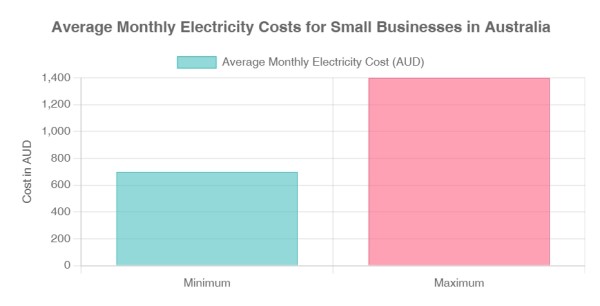
My Eye-Opening Experience
Do not be made a sucker by an electricity comparison provider? As a business owner in Australia, I recently had an encounter that left me questioning their claims.
About a year ago, I blogged about the pitfalls of using the government electric comparison websites here. In summary, the figures on the government website I would get from my existing provider were wrong for me. It made me wonder if the other figures quoted from different providers were terrible, too.
My recent experience with a commercial energy comparison provider is here. It all started with an email stating that the plan they set up for me was running out and it was time to renew. The problem here was my existing plan had a few months to go and that they never set it up. But as they did promise to slash my shop's electricity bills, I decided to find out what they had to say. So I rang up and got a cheerful voice claiming to be an "electricity expert". She offered to find me the cheapest plan for my business, promising savings. Admittedly, the quoted amount seemed too good to be accurate, but I would be happy if something could be done with our electric bills.
The conversation went something like this:
- They asked for some basic details about my shop's energy usage.
- They wanted a recent electric bill.
- The call ended with her excitedly promising "thousands of dollars" in annual savings by quoting one much cheaper item.
I signed a form allowing them to look and later sent a bill
She then called back with an offer. The offer, however, seemed too good to be true. Trusting my instincts, I requested the information in writing to allow me to digest it. Here's what unfolded:
- An email arrived, but it lacked the comprehensive details I expected.
- Upon closer inspection, I made a startling discovery: the new plan was actually more expensive than my current one—20% more.
- I reached out for clarification by email, only to be met with silence. They never responded.
Retail electricity costs
Here are some facts about electricity costs for small retailers in Australia:
Electricity prices are up, with government taxation playing a significant role.
On average, small businesses in Australia pay between $700 and $1,400 a month for electricity. No matter what they say, you are not going to get a vast reduction.
Energy bill reduction for shops
Here are some tips for energy efficiency
- Upgrade to energy-efficient lighting: LED bulbs can significantly reduce your energy consumption.
- Optimise your heating and cooling: Proper insulation and smart thermostats can make a big difference.
- Invest in energy-efficient appliances: Look for appliances with high energy star ratings.
- Implement a switch-off policy: This one is inexcusable. Ensure your equipment is turned off outside of business hours.
- Use natural light: Where possible, use natural light to reduce reliance on artificial lighting. I opened the blinds at work; we work in the daytime and have plenty of sun.
Lessons Learned: A Retailer's Guide to Energy Savings
This experience taught me valuable lessons that I believe every business owner should know:
- Do your homework: You have got to use some intelligence
- Look at the big picture: Don't be swayed by one attractive rate. Always consider the total cost.
- Plan B: Check what happens if it does not work out and you want out
- Leverage your relationship: If you're satisfied with your current provider, before doing anything by explaining the situation. I have an offer for .....
Red Flags to Watch Out For
Based on my experience, here are some warning signs that an energy offer might not be as good as it seems:
- Pressure to sign up immediately
- Reluctance to provide details in writing
- Promises of unrealistic savings
Wrapping Up
Be careful. Also, remember the cheapest plan is not always the best. Customer service and provider reliability are crucial for keeping your business running smoothly.


